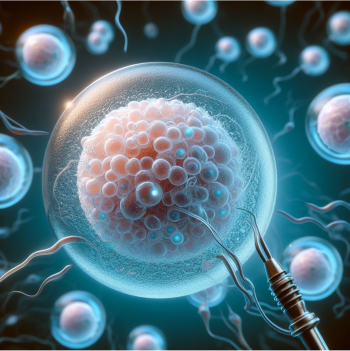
Egg Donor
GoFertility is actively recruiting young women who meet a certain set of criteria to donate their unused eggs.
Egg Donor
GoFertility (or CRMRS) is actively recruiting females willing to donate their eggs for our infertile patients to utilize. In addition to helping in-need couples attain their dream of parenthood and having a baby, egg donors can earn up to $30,000 for their services. Criteria to become an egg donor at GoFertility — which is located in St. Louis — includes:.
- Must be between the ages of 18 and 29
- Have regular monthly periods
- In good physical, mental and psychological health
- Non-smoker
- No history of substance or alcohol abuse
- No family history of inheritable genetic disorders

Choose a Center You Can Trust with Your Donor Eggs
Why should you select GoFertility’s donor egg program for your monthly unused eggs? GoFertility is conveniently located in Creve Coeur and has a reputation as one of the best fertility clinics in the country. In 2023, we were ranked by Newsweek as a top-50 fertility clinic in America. We were one of just two Missouri clinics to receive this designation.
GoFertility is led by Dr. Saji Jacob, a world-class reproductive endocrinologist and infertility specialist (REI) who has a lifelong interest in assisting couples during their infertility journey. Dr. Jacob is a board-certified OB/GYN and embryologist. He is likewise board-certified as a high-complexity clinical lab director, making him one of a small number of doctors in the U.S. to hold these dual certifications.
Our office manager, Ashley Graham, is a former in-vitro fertilization (IVF) patient and a robotic surgery patient of Dr. Jacob’s. The two have worked together since GoFertility opened in 2011 and have walked side by side with couples through their difficult infertility journey. Every year since 2011, GoFertility has bested the national pregnancy rate per embryo transfer.
We have been able to help hundreds of couples achieve their dream of having a baby through donated eggs. When you donate your eggs — which are otherwise lost every month — you are helping a deserving couple have a baby. There is nothing that could really compensate for your altruism.
Our expertise, compassionate care, top-notch equipment and history of success uniquely position us as an ideal clinic for egg donors. We are happy to take the time to answer any questions you may have about this process. Get in touch with us at 314-473-1285 or AGraham@GoFertility.com to learn more today!

Benefits of Egg Donation at GoFertility in St. Louis
With 1 in 6 people globally experiencing the devastation of infertility, the inability to get pregnant is a worldwide epidemic. As a result — especially due to delayed child bearing — egg donation has increasingly become a major necessity. With the trend of couples waiting to have their first child until later in life and not being able to become pregnant at this advanced life stage, egg donors are in high demand.
Females are born with a finite number of eggs and a limited number of them are available each month. The number and quality of eggs women produce decreases over time and can significantly plummet beyond the age of 35. Females in their 40s particularly struggle with infertility. Women with no ovaries or genetic factors they don’t want to pass on to their children may also opt for donated eggs.
By becoming an egg donor, you are providing these females an opportunity to have a child. Young women — especially college students, nurses, medical professionals and individuals attending dental or medical school — make terrific matches for egg donation. The American Society for Reproductive Medicine has guidelines set up for egg donors, including their ability to earn up to $30,000.
Egg donation is a major component of our important work at GoFertility, and we admire the young women willing to donate their eggs to help couples in need. Egg donation is a lot like blood donation, and we will guide you through all the steps when you reach out to us. We appreciate your consideration of GoFertility’s egg donation program, and we look forward to hearing from you!
If you wish to consider using an egg donor, please click the link to register. Once complete, you may be able to search the database to select a donor of your choice.